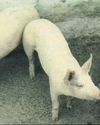Gugulethu Zondi, the Agricultural Research Council’s 2016 National Emerging Beef Farmer of the Year, says that farming should be treated like any other business, and that beef farmers should choose their breeds based on performance rather than preference.

Gugulethu (Gugu) Zondi was born and raised in the rural areas of Emathulini and Ozwathini in upper Tongaat in KwaZuluNatal. She spent her childhood herding her father’s cattle.
This delayed the beginning of her school career, and she only started Grade 1 when she was nine years old. Nevertheless, she successfully completed matric in 1986.INTEREST IN FARMING
Since completing school, Gugu has been involved in a couple of professions. A teacher by training, she also worked as a bank teller. In 1998, while pregnant with her twin girls, she quit formal employment and started working with communities in rural areas throughout KZN.
It was during this time that she also began farming, and produced amadumbe and potatoes on 3ha of communal land.
She sold her produce to the local community, especially at pension-collection points. She also supplied informal traders and the morning fresh produce markets in Tongaat and Verulam.
“I was using a 20â„“ empty tin, which we call igogogo, to weigh produce. I didn’t calculate the produce in tons,” she says.
Fast Facts
Gugulethu Zondi is the 2016 agricultural Research council’s National Emerging Beef Farmer of the Year.
Her Brakspruit farm is used to place undergraduates from agri colleges for in-service training.
The farm uses a rotational grazing system.
“The important thing when you’re a small producer is to have good-quality produce to offer your customers, and to make a profit that will enable you to cover production costs so that your business is sustainable.”
Gugu later diversified into poultry and Nguni cattle, but soon realised that the potential for growth of her livestock concern was limited on communal land because of a lack of sufficient grazing.
Water was also a limiting factor, because streams dried up in winter.
この記事は Farmer's Weekly の Farmer's Weekly 4 May 2018 版に掲載されています。
7 日間の Magzter GOLD 無料トライアルを開始して、何千もの厳選されたプレミアム ストーリー、9,000 以上の雑誌や新聞にアクセスしてください。
すでに購読者です ? サインイン
この記事は Farmer's Weekly の Farmer's Weekly 4 May 2018 版に掲載されています。
7 日間の Magzter GOLD 無料トライアルを開始して、何千もの厳選されたプレミアム ストーリー、9,000 以上の雑誌や新聞にアクセスしてください。
すでに購読者です? サインイン

Improving efficiencies in feed and grain milling
Bühler, a Swiss-based company that provides solutions and equipment for various industries, including food and animal feed processing, has pledged that by 2025, it will deliver scalable solutions that will reduce energy, waste and water by 50% in the value chains of its customers.

Tips for better olive production
At an SA Olive Association field day in November, industry experts shared ways to improve olive production efficiencies, from soil preparation to harvesting.

More effort needed to protect vulnerable cheetah
On International Cheetah Day, commemorated every year on 4 December, emphasis was placed on the vulnerability of the species.

Global agriculture: news that made the headlines
Farmer protests, droughts and floods dominated international agricultural news throughout 2024. Here, Janine Ryan gives an overview of these challenges.

Something to scratch a head about
This article showed that if you interact with your pigs, your sows will be happy and their piglets will have better growth.

ARC names best dairy producers of the year
The Agricultural Research Council (ARC) recently announced the winners of the 2024 National Master Dairyman Awards at an event hosted by AgriExpo in Stellenbosch, Western Cape.

Lion breeders to give up bone stockpiles?
The Ministry of Forestry, Fisheries and the Environment issued an official notice in mid-November in which it called on lion breeders to voluntarily hand over their lion bone stockpiles to the state as soon as possible.

Thousands of British farmers march on parliament against inheritance tax
Thousands of UK farmers gathered in London, England, on 19 November to demand the government repeal a proposed inheritance tax on agricultural land, which they argued threatened the future of family-run farms (see page 4), Al Jazeera reported.

Feed, hay, and other costs are up, so it's time to get creative
Breeders and riding schools need to explore innovative ways to generate income in order to ensure their survival, says Dr Mac.

How to make polystyrene seedling trays last longer
While thinking about how to prolong the lifespan of polystyrene seedling trays that are exposed to harsh sunlight, Bill Kerr began to wonder if a coat of paint might offer a solution.